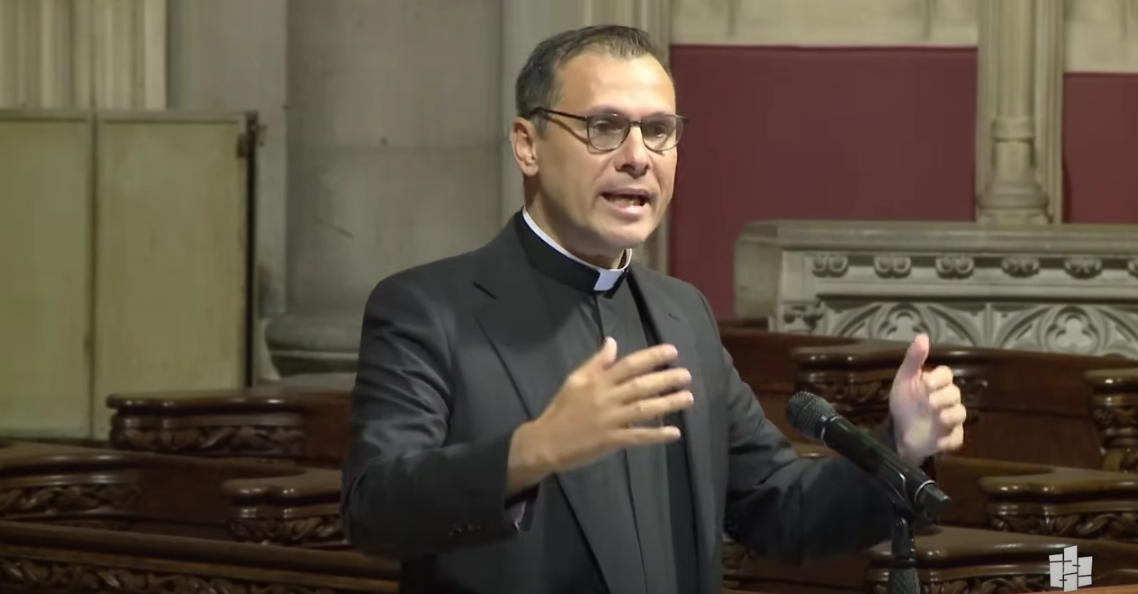
On April 4, 1967, from the pulpit of Manhattan’s storied Riverside Church, the Reverend Dr. Martin Luther King, Jr., delivered one of his most powerful sermons. Titled “Beyond Vietnam—A Time to Break Silence,” it was the first time King had publicly denounced the Vietnam War. He had long avoided doing so in the past, but finally concluded that his conscience left him “no other choice.” As he explained to the congregation, “a time comes when silence is betrayal.”
Dr. King’s breaking point had come shortly before, while he was at an airport, leafing through the pages of Ramparts magazine. He came to an article called “The Children of Vietnam,” which featured images of young Vietnamese “with amputated limbs, faces pockmarked by shrapnel scars, and bodies burned by napalm.” According to those who were with him, King vowed in that moment to do “everything I can to end that war.”[1]
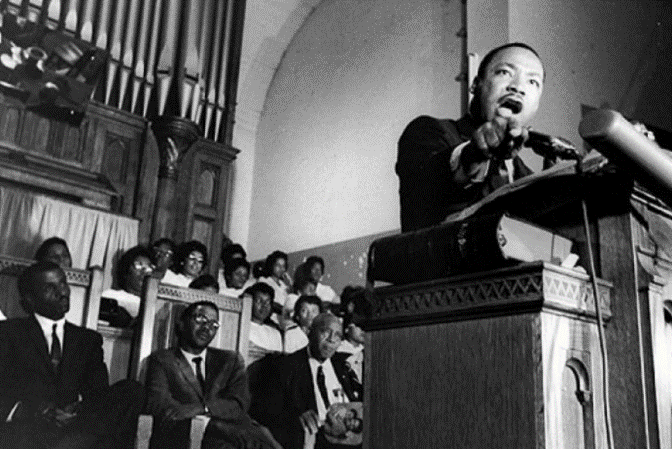
By that time King was already despised by much if not most of white America, in the North as well as the South. But once he began to speak against the war, many of his former allies in the Civil Rights Movement distanced themselves from him, as he explained to the Riverside audience. Organizations like the NAACP and the Urban League were deeply unhappy with what they saw as “the ‘tactical mistake’ of trying to unite the peace and civil rights movements.” And embracing the anti-war cause certainly did not improve his relationship with the administration of Lyndon B. Johnson.
Obviously, King knew that his stance was going to be unpopular, but this did not deter him. From that Riverside Church pulpit, he urged the United States to “undergo a radical revolution of values,” namely a “shift from a thing-oriented society to a person-oriented society.” As long as “profit motives and property rights” were “considered more important than people,” he warned, “the giant triplets of racism, extreme materialism, and militarism are incapable of being conquered.”
King was assassinated on April 4, 1968—exactly one year after delivering “Beyond Vietnam.” In that all-too-brief interim, he continued to condemn American atrocities in Indochina. Both this activism and his sermon at Riverside in particular stand as powerful monuments to his legacy, and to the legacy of a politically engaged religious left.
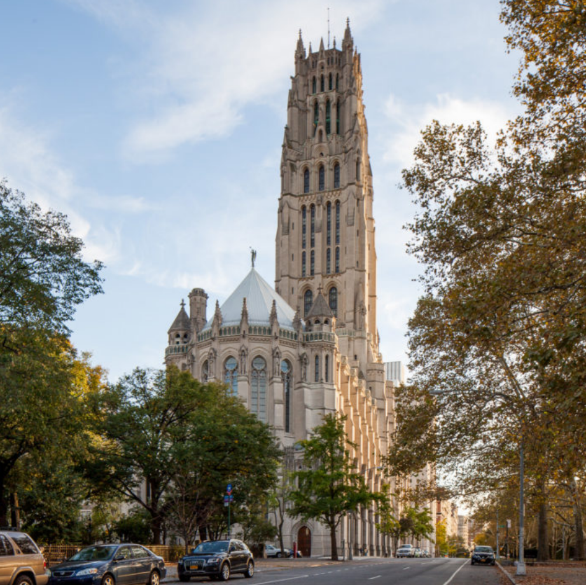
From Vietnam to Gaza
It has been more than 57 years since King’s anti-war sermon. If he were alive today, he would surely be dismayed that his “radical revolution of values” has not occurred. With the United States directly enabling a genocide in Gaza, and with most religious and political leaders either unwilling to speak out, or else actively supportive of the Israeli cause, the parallels to 1967 are dismaying.
In the midst of our modern-day Vietnam, another activist minister has taken up King’s mission. On Wednesday, August 14, 2024, the Reverend Dr. Munther Isaac took to the same Riverside Church pulpit to deliver what amounted to a spiritual sequel to King’s “Beyond Vietnam” speech, titled “Silence Is Complicity.”
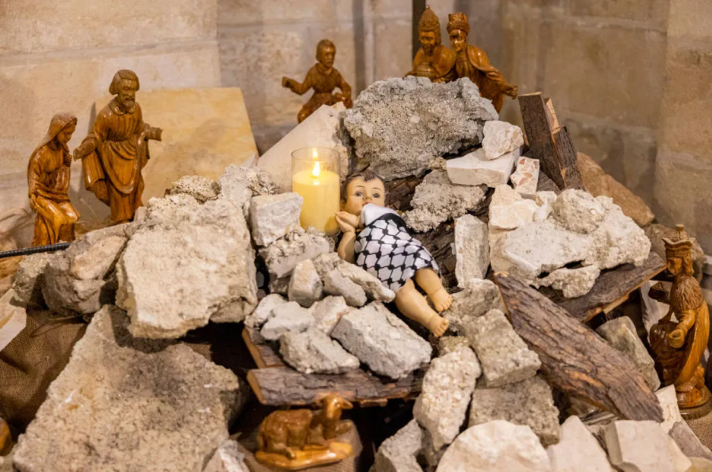
A prominent Palestinian Christian leader, Reverend Isaac is the pastor of the Evangelical Lutheran Christmas Church in Bethlehem in the Israeli-occupied West Bank. Just as King’s ministry was informed by his personal experience with Jim Crow apartheid, so too has Isaac’s work been informed by his personal experience with Israeli apartheid, a topic he addressed in his remarks. “We are fearful of travelling from one Palestinian town to another—afraid of the violence of the settlers. Afraid of the checkpoint system”—referring to the apartheid system Israel has imposed on the West Bank where Isaac lives, which makes it almost impossible for Palestinians to travel anywhere, and where they are subject to shocking levels of violence from Israeli settlers.
While Isaac has long been a forceful advocate for the Palestinian people, his sermons began to receive considerably more attention after the Hamas attacks of October 7, 2023—particularly since December of that year, when Isaac delivered his Christmas sermon “Christ in the Rubble.” This moving speech made its way around the internet, and led to increasing visibility for the plight of the Palestinians in spaces and communities—namely, among American Christians—that had never considered the issue in the past.
The Palestinian Christian minority suffers just as much under Israeli rule as the Muslim majority. Palestinian Christians have not been shy about explaining this. And Israeli forces have made it clear through their behavior that they see all Palestinians, regardless of faith, as “terrorists” and “sub-human.”
To take just one example, recall the murder of prominent Palestinian-American journalist Shireen Abu Akleh, whose Christian heritage (as well as clearly visible “PRESS” vest) did not save her from being executed by Israeli forces in what even CNN contends was a targeted killing. Israeli police proceeded to violently disrupt her Christian funeral service, brutally beating mourners and nearly causing the pallbearers to drop her coffin.
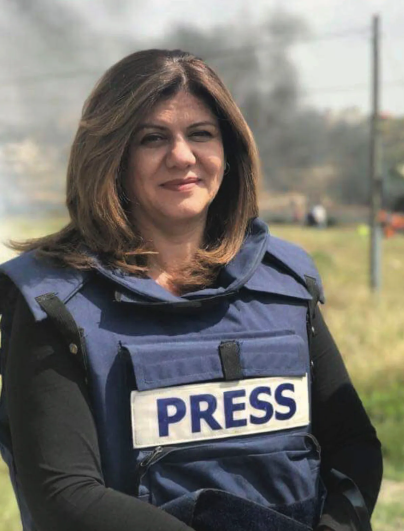
Despite incidents like this receiving international attention, until fairly recently most Americans had little idea that there were any Christians in Palestine. Journalist Adam Johnson, for instance, recounted that his Christian family members expressed disbelief when he attempted to explain this: “I’m like, well, where do you think Bethlehem is, exactly?” he joked.
Thanks to Reverend Isaac’s important work, and the work of organizations like Friends of Sabeel North America (FOSNA), the Palestinian Christian organization that advocates for the Palestinian cause and co-sponsored his appearance at Riverside, that is changing. Indeed, that a Palestinian would be invited to follow in King’s literal footsteps—Isaac noted that he was “both humbled and horrified” to be spoken of in the same sentence as “the great Christian leader”—is a sign of considerable progress.
Unfortunately, the increased visibility of Isaac and the Palestinian Christian community has not resulted in a significant number of American churches speaking up for Gaza. Thus, while Isaac’s sermon stressed that all Americans regardless of faith (or lack of it) needed to come to Gaza’s aid, the bulk of his remarks were directed at American churches, which he indicted for their inaction in the face of genocide, and for their refusal to label the Israeli project “apartheid.”
Christians Complicit
Isaac had choice words for American churches and their leadership. He noted that, unlike past genocides, this one has been playing out on social media, with many of the perpetrators boasting on various platforms about what they have been doing. Accordingly, since “no one can claim they did not know,” Isaac warned American faith leaders that “your apologies after the genocide will not be accepted.”
Granted, Isaac was not exclusively singling out religious institutions. At multiple points, he addressed the entire American public. “Friends, it’s your money. Your silence tells us that you approve of your tax dollars going to genocide,” he declared. To an extent he even extended that critique to the entire “West”—“I never want to hear any American or European lecture us on human rights again!”
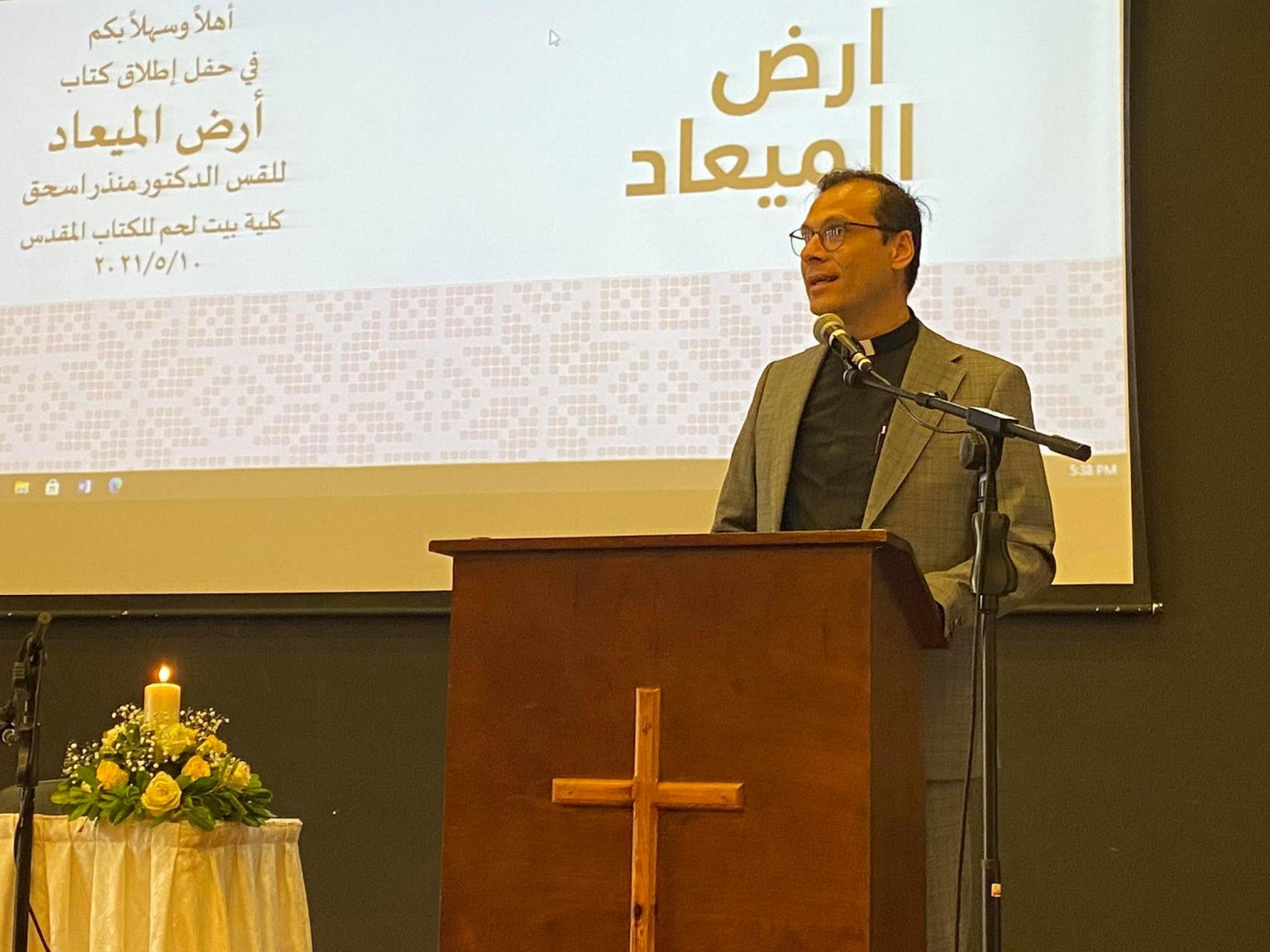
Nonetheless, it was clear that Isaac had come to the United States to spur the churches to action. “The American church is complicit with all of this,” he lamented. It would not be the first example of such gross inaction. Isaac recounted his visit as a young person to the Jerusalem Holocaust Museum.
As he made his way through the exhibits, he thought to himself, “where was the church?” Later, as he began to explore the history of the period, he was appalled to learn that the churches were largely complicit—“actually, more than complicit,” he clarified. Nowadays, he finds himself asking the same question about the genocide in Gaza—where is the church? Why is it silent?
Worse, many of the churches that have spoken up have done so in order to defend the perpetrators.
Denominations that adhere to the theology of Christian Zionism have long been fanatically pro-Israel. Christian Zionism is “a modern millenarian movement stemming from American Conservative Evangelicalism, which advocates that the restoration of Diaspora Jews to Palestine” in order to bring about “an End Time scenario in which Christ returns to rule the world for a thousand years before the final judgment,” which will be “from a theocratic Kingdom centered on Jerusalem.”
These evangelicals “are even more dedicated than the majority of Jewish interest groups in providing political and financial support to the modern State of Israel. They vote disproportionately for the Republican Party and have significant links with neo-conservatism.”[2]
This theology has not just been a decades-long lifeline for the Israeli project, but was in fact partly responsible for its creation. Israeli historian Ilan Pappé argues that, “before the emergence of Zionism [as a Jewish political project,] it was mainly Christians who wished, for ecclesiastical reasons, to settle Jews in Palestine more permanently.” Thus, Zionism was actually “a Christian project of colonization before it became a Jewish one.”[3] It is for this reason that Isaac took pains to remind his American audience that “Christian Zionism predates Jewish Zionism.”
He also noted that there are far more Christian Zionists than Jewish ones, and that they exert an enormous influence over policy in the United States. The Christian Zionist community is indeed very influential, having been close to the administrations of George W. Bush and Donald Trump.
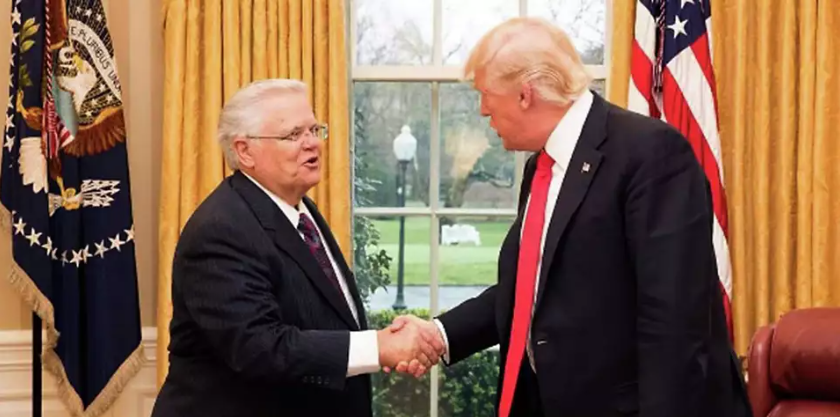
The movement is represented by groups like Christians United for Israel (CUFI) and its leader, Pastor John Hagee—known for his belief that “God sent Adolf Hitler to help Jews reach the promised land,” for claiming “that the antichrist is a half-Jewish homosexual,” and for leaning in to “anti-Semitic theories about Jewish bankers controlling the Federal Reserve.” Despite this, Hagee has been enthusiastically embraced by the Israeli leadership, including Benjamin Netanyahu himself. The two have been long-time friends and political allies. Indeed, during Netanyahu’s recent visit to Congress, “one of the most shameful moments in American history,” and which Reverend Isaac condemned repeatedly in his sermon, Netanyahu paid Hagee and other Christian Zionist leaders a visit, praising their continued support to his government.
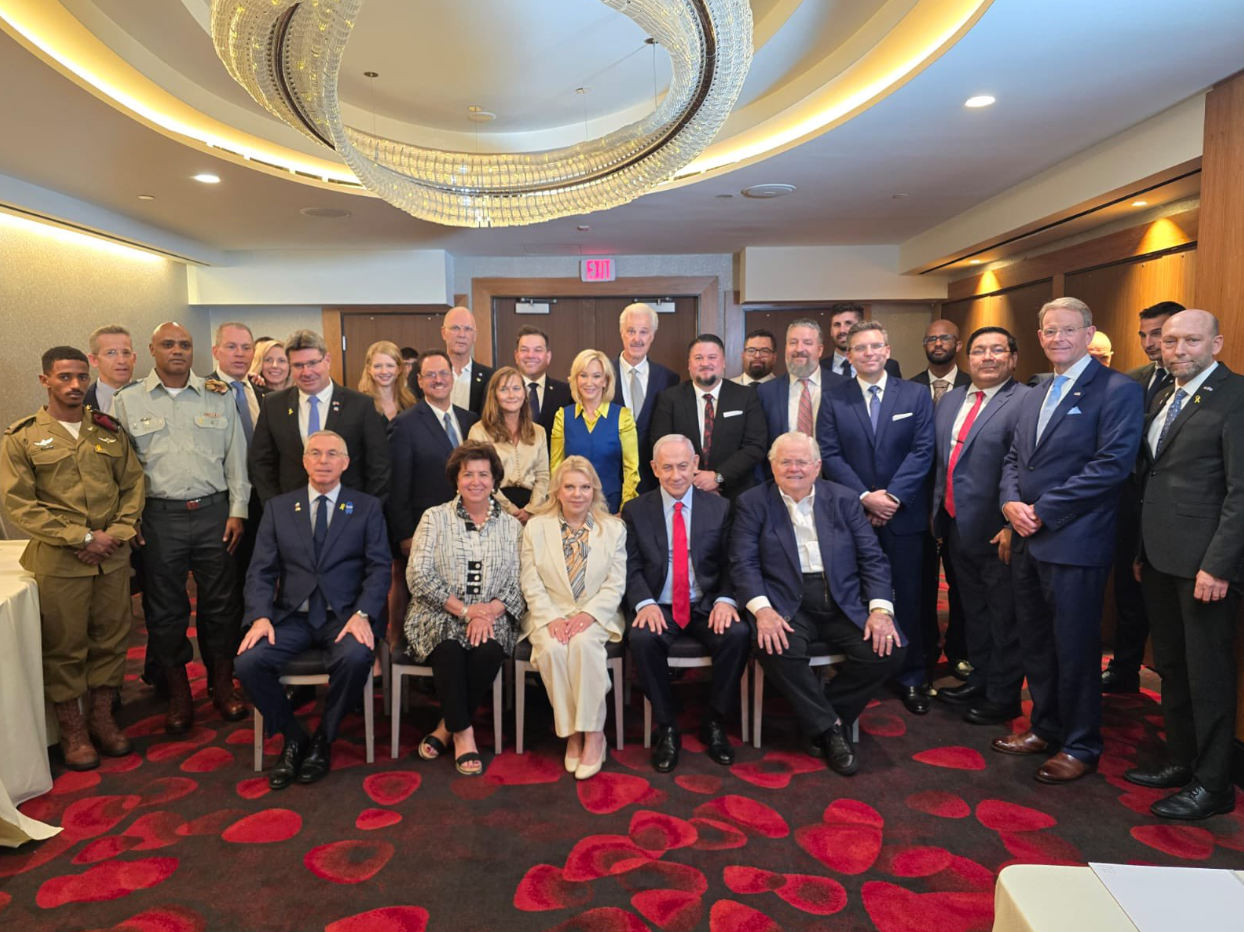
As a result of the influence of this malign theology, Isaac argued, the issue of Palestine is the only one in the world where the reference point is religious, as opposed to the secular realm of international law. “How,” he asked, “can I argue with you, when your argument is ‘God said so?’” Apparently because they think they have God on their side, “so many pastors support the genocide.”
Isaac specifically singled out Michigan Republican Tim Walberg, who had been an Evangelical Pastor prior to his election to Congress. Asked by a constituent why the U.S. was spending money on a pier and other forms of humanitarian assistance, Walberg infamously replied, “We shouldn’t be spending a dime on humanitarian aid,” and said that Israel’s strategy “should be like Nagasaki and Hiroshima. Get it over quick.” (Walberg also suggested that U.S. aid to Ukraine should not be for “humanitarian purposes,” but rather “to wipe out Russia, if that’s what we want to do.”)
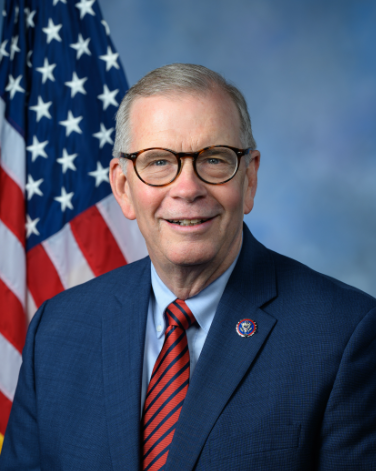
Reverend Isaac admonished Pastor/Representative Walberg for suggesting that the atomic bombings of Japan could be justified, as well as for his theological reasoning—“what Jesus are you reading?” Indeed, Walberg’s remarks serve to highlight another crucial point Isaac made to his Riverside audience. “It’s good that Gaza has divided the world,” he insisted, because “we need to know where you stand.” The choice, he said, is clear: “Either you are with justice, or with apartheid. It’s that simple.”
It has thus been edifying to witness the GOP—fresh off its absurd attempt to rebrand itself as an anti-war organization opposed to “forever wars” in the Middle East—adopt some of the most unhinged, bloodthirsty rhetoric toward Gaza and Palestinians. While the Democratic Party has been disingenuously distancing itself (rhetorically) from Israel’s cruelty while continuing to fund and support it, the Republicans have been, to use Reverend Isaac’s terms, letting the world know exactly where they stand. In this respect, Walberg is in good company.
Self-described “Christian Nationalist” Marjorie Taylor Greene claimed that “Anyone that is pro-Palestinian is pro-Hamas.” Lindsey Graham urged Israel to “level the place,” arguing that, if Gaza does not “look like Tokyo and Berlin at the end of World War II,” then “Israel made a mistake.”
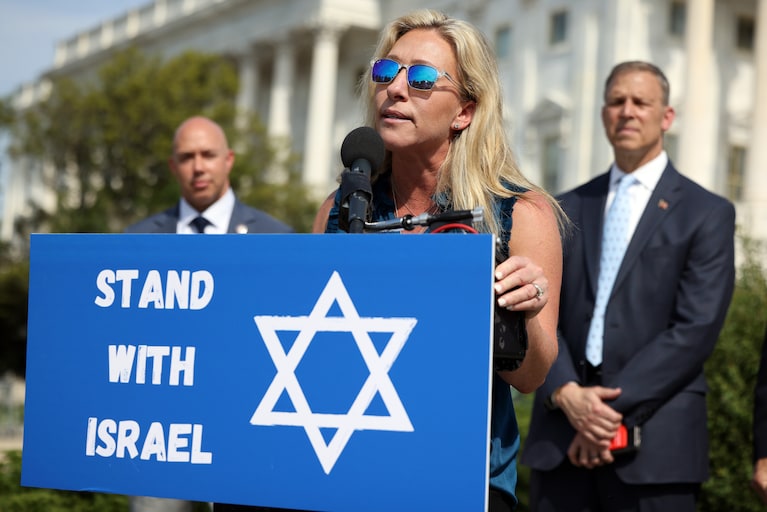
Florida’s Brian Mast (another evangelical) ranted to CodePink activists that “Israel should go in there and kick the shit out of them, just absolutely destroy them, their infrastructure, level anything that they touch,” and later claimed that “there are very few innocent Palestinian civilians.” Ohio’s Max Miller boasted that “we’re going to turn [Palestine] into a parking lot,” and said that there should be “no rules of engagement” for Israel. And Tennessee’s Andy Ogles, in comments that could have come straight from the satirical anti-fascist film Starship Troopers, declared: “I think we should kill ’em all!”
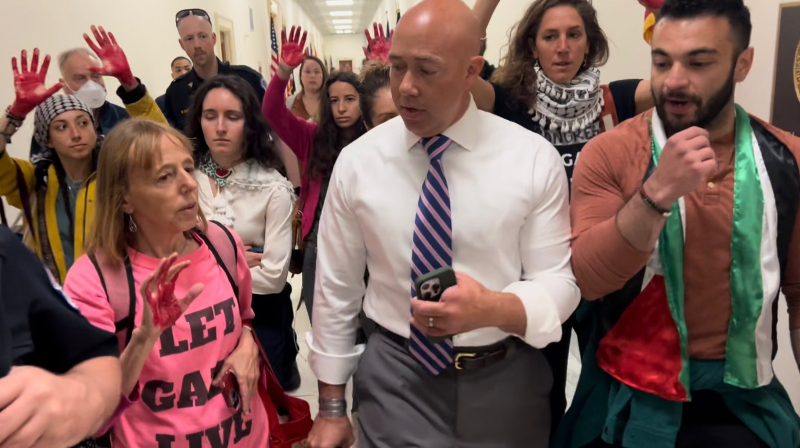
So Christian Zionism is a major obstacle. But as Isaac went on to explain, it is not only the Christian Zionist churches that are complicit. He lamented that many mainline denominations have been shockingly supportive of Israel’s actions as well, including ones that have positioned themselves as “progressive.” This was especially galling for Isaac: “This is the church that doesn’t want to offend anybody, but is silent during a genocide!” Describing behind-the-scenes conversations with clergy from some of these denominations, Isaac reported that many told him they were personally against the Israeli assault, and “wished” that they could say so in public, but that they had no choice other than to stick to their denominations’ official positions.
Isaac’s advice to these religious leaders who claim to want to “say these things publicly” was blunt: “Well, you can.” Isaac implored that it was not too late for the churches to acknowledge the existence of empire and their complicity with it. He urged repentance, and action: “If it is apartheid, call it apartheid and act accordingly.” He called for an arms embargo on Israel, not just a cease-fire. And he was adamant that “those who commit war crimes,” the “architects of apartheid,” be held accountable for what they have done—not honored in the American Congress.
The World Did Not Deserve Them
While pained by the absence of any significant organized action on the part of his fellow Christians, Isaac was visibly moved by the support Palestinians have received from anti-Zionist Jewish groups, who have been steadfast in their rejection of Israeli policy. He was profoundly grateful for the courage of organizations like If Not Now and Jewish Voice for Peace (JVP). He specifically praised the clarity and simplicity of the latter’s stated position on Zionism, which he read aloud: “Jewish Voice for Peace is guided by a vision of justice, equality and freedom for all people. We unequivocally oppose Zionism because it is counter to those ideals.” “I wish Christians had the courage to call things as they are like this,” he said. [Emphasis added.]

Isaac also praised the American university students who set up encampments across the country and kept the spotlight on Palestine. Alluding to student activism against the Vietnam War, Isaac noted that universities have historically been on the right side of history. “This is where the church belongs,” he declared. “The church belongs in the streets.” And he made a very important point that bears special emphasis given its importance for activists: “September is more important than November.” While most people are focused on the presidential race (November), Isaac stressed that he was much more concerned with what will happen in September—when college students return to their universities. He called on them to set up more encampments and to continue the fight. “Keep speaking truth,” he encouraged. “Be creative, nonviolent, and strong.”
His praise of the students was fitting. Riverside Church is just a few blocks from Columbia University, where some of the most committed students held out against police repression unleashed on them by Columbia President Minouche Shafik. In an utterly remarkable coincidence, during the follow-on Q&A after the sermon, one of Riverside’s clergy broke in to announce that Shafik had just resigned her position. This, like many of Reverend Isaac’s comments, was greeted with tremendous applause and cheers.
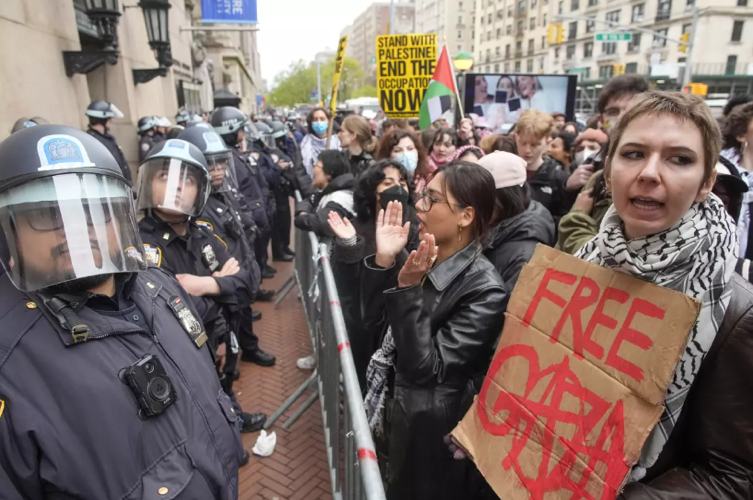
But the mood throughout the talk was for the most part somber, given the topic. In one of the evening’s most affecting moments, Isaac paused to honor the doctors, nurses and other aid workers, both those from Gaza and those who came from abroad to help in its hour of need. “The world was not worthy of them,” he intoned. Indeed, Israel has killed such heroic figures in astonishing numbers, often deliberately.
Demolishing Myths
American discourse around Israel and Palestine has traditionally been defined by a number of clichés and myths which have served to prevent the public from grasping the true nature of the situation on the ground. One of the most striking features of Reverend Isaac’s sermon was that he eviscerated virtually every single one of them.
First and foremost, he was explicit in identifying that “the war did not start on October 7th.” He argued that the genocide instead originated long ago with the phrase “a land without a people.”
This was of course a reference to the saying “a land without a people for a people without a land,” one of the most pervasive myths used to justify the British-backed Israeli colonization of Palestine, which at the time was absolutely not “a land without a people,” but fully inhabited by Palestinians who had been there for hundreds of years. But since, then as now, “many in the West don’t see us as human,” their gradual displacement and eventual ethnic cleansing was not viewed as problematic.[4]
Another refrain endlessly invoked in the United States is that Israel is “the only democracy in the Middle East.” Isaac had little patience for this. “I hope people realize how insulting it is to rub it in our faces that Israel is ‘the only democracy in the Middle East’ when Israel is an apartheid state.” Of course, the applicability of the term “apartheid” is also hotly contested by Israel’s supporters, who are reliably outraged that anyone would associate Israel with the despised former South African regime. Some might note that this outrage is historically illiterate, given that Israel was one of the only countries (other than the United States) to support South African apartheid to the very end, including a secret project to develop illegal nuclear weapons.
In case anyone needed convincing, Isaac cited the Israeli human rights group B’Tselem, which titled its report describing the Israeli occupation “This is Apartheid.” Isaac read aloud the subtitle of that report, which described “a regime of Jewish supremacy from the Jordan river to the Mediterranean Sea.” That phrasing was designed to echo the cry “from the river to the sea, Palestine will be free,” often invoked by Palestinians and their allies. The phrase is controversial because Israel’s supporters falsely insist that it is a cry for genocide against Israeli Jews. After reading from the B’Tselem report, Isaac quipped, “I wish those people offended by that phrase were as offended by the oppression of Palestinians from the river to the sea.”
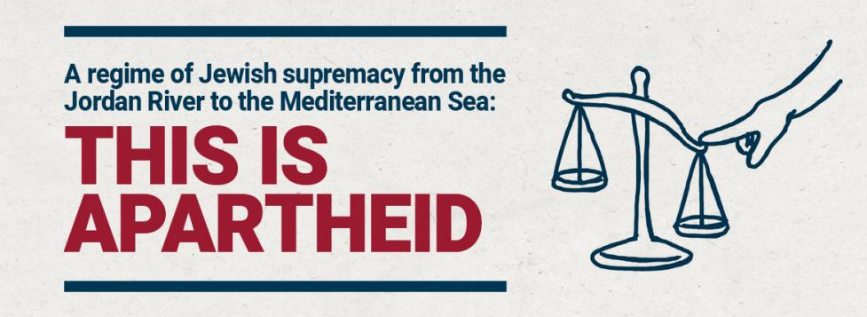
Isaac also called for the world to stop referring to “the Israeli-Palestinian conflict.” “Stop talking about the Israel-Palestine conflict,” he demanded. “There is no conflict. We live under apartheid.” “There are not two sides that simply cannot get along,” he added.
He had no patience for those who would defend Zionism. “Zionism is racism. Call it what it is.” Of the early Zionist leaders, he remarked, “They told us what they were going to do, and then they did it.” Indeed, as early as 1895, Theodore Herzl, the “acknowledged leader of the growing [Zionist] movement he had founded,” was talking about expelling most Palestinians from their land:
“We must expropriate gently the private property on the estates assigned to us. We shall try to spirit the penniless population across the border by procuring employment for it in the transit countries, while denying it employment in our own country. The property owners will come over to our side. Both the process of expropriation and the removal of the poor must be carried out discreetly and circumspectly.”[5]
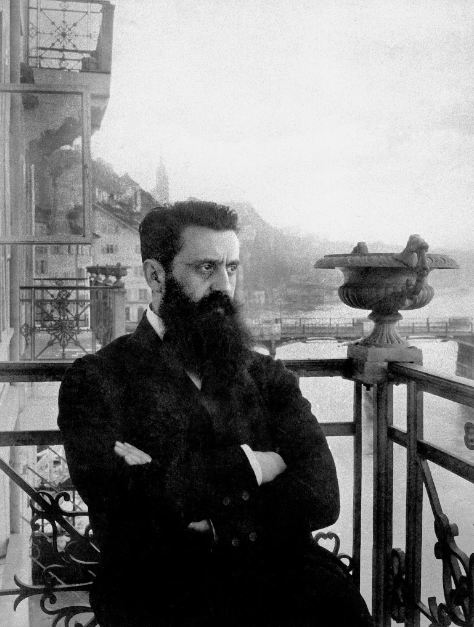
As for the myth that Israel is “the most moral army in the world,” one of the most frequently deployed tropes, Isaac made quick work of it. “There are no safe zones in Gaza. They’re lying. No one is safe.” Indeed, as Isaac delivered his remarks, Israeli society was busy having a national debate over whether or not the IDF should formally institutionalize anally raping Palestinian prisoners as a standard practice—a topic American mainstream media have been scrupulously downplaying or outright ignoring.
Another ubiquitous myth about Israel—United States discourse really is full of them—is that its conduct somehow always amounts to “defense.” “Israel has a right to defend itself” was probably the most common excuse trotted out in the decades prior to October 7th. It was not credible then, and it is beyond farcical now. Yet we still hear it incessantly. Isaac identified the persistence of this cliché as an example of “the problem of empire dictating the terms.” “How,” he wondered, “is the colonizer defending itself against the colonized?”
Furthermore, it is indicative of a deeply perverse double standard. “If Israel has a right to defend itself, do Palestinians ever get that right?” Isaac was quick to clarify that he had always been and will always be an advocate for peaceful means of resistance only; his point was merely to highlight the disparity between how Palestinian violence (resistance to colonialism) and Israeli violence (prior to and exponentially greater than Palestinian violence) is described.
And on the topic of October 7th, Isaac was unequivocal: “I hope we all agree that killing families in their home or kidnapping children is wrong. It’s evil and it must be condemned.” And yet once more the double standard rears its ugly head. “9,000 Palestinians have been kidnapped since October 7th. Why is everyone silent?” They’ve been “tortured, starved, raped, left to die in detention.” “Are we less human?”
It is dismaying that any of these talking points are still around ten months into the genocide. Yet with powerful spokespeople like Isaac communicating their absurdity directly to American audiences, their once-unbreakable grip on the national conversation at least has begun to weaken.
Hope
One theme of Isaac’s speech that came up repeatedly was the indescribably tragic story of Mohammad Abu Al-Qumsan and his family, which has quickly become a metaphor for the brutal, inhuman cruelty that has been meted out on Gaza.
Al-Qumsan’s 28-year-old wife Jumana delivered twins, Aysal and Aser, on August 11. On August 14th—the day of Isaac’s sermon—the IDF killed the four-day-old infants and their mother in a strike on their apartment in Deir al-Balah, while Mohammad was out collecting their birth certificates.
Mohammad had just relocated his family to Deir al-Balah “in a desperate attempt to protect his then-pregnant wife from Israel’s relentless bombing campaign on Gaza.” Footage of the emotionally distraught father reacting to the news, with the birth certificates in hand and sobbing uncontrollably, is difficult to view.
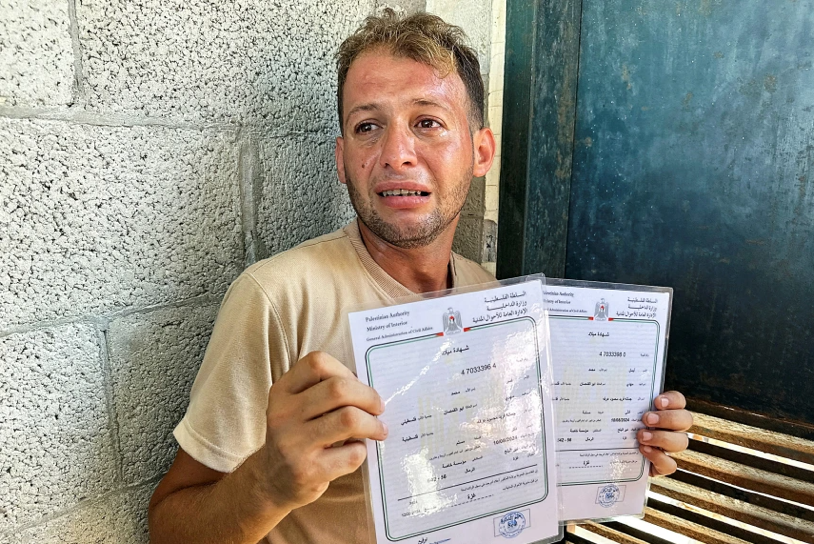
“How many more need to be killed before the world sees the children of Gaza as human?” Isaac asked. “I feel compelled to say their names—Aysal and Aser—they joined more than 16,000 children killed in this war—which includes more than 2,000 infants.”
With horrors like this occurring daily, and with the Biden administration responding by funneling an additional $3.5 billion to Israel for weapons purchases, it would seem impossible to have hope—perhaps even wrong to try. What right do comfortable Westerners have to long for hope, given what Gazans are experiencing?
And indeed, Isaac’s speech could hardly be characterized as overly optimistic. It was not meant to be. It was meant to spur people to action.
Yet there were a few moments where Reverend Isaac came across as remarkably hopeful despite it all. Of particular note was his reply upon being asked how to reach Christian Zionists. He did not declare those Evangelicals unreachable—far from it. Rather, he suggested that people simply “have conversations with them, guided by kindness yet also boldness. Many can be reached because they are simply misinformed.” He added that he has personally seen many of them change, with some becoming very effective advocates for Palestine.
When I heard him give that answer, I was reminded of something similar that the radical historian Howard Zinn once said: “I believe people are basically decent, they just lack information.” Isaac and Zinn are right, I would argue. After all, if literal Israel lobby members can become anti-Zionist activists, anyone can be reasoned with.
Isaac may have sensed that some in the audience believed that such tactics—gradual persuasion through gentle yet firm conversations—were insignificant given the scale of the onslaught. This may be why he went out of his way to encourage his listeners to pursue such actions. “We might think that what we’re doing is not achieving results. We might feel helpless and hopeless, but as I keep saying, we cannot stop.” He encouraged his multifaith audience that “small initiatives that you have done in the basements of mosques or churches or synagogues, in which you have begun to initiate change,” are vitally important. Especially if we are to accomplish what he called for in his closing remarks—for “empire, colonialism and apartheid” to be “dismantled once and for all, not just in South Africa or in Palestine, but everywhere.”
Amen.

-
This incident is recounted in Christian G. Appy, American Reckoning: The Vietnam War and Our National Identity (New York: Viking, 2015), pp. 59-62. ↑
-
Carlo Aldrovandi, “Theo-Politics in the Holy Land: Christian Zionism and Jewish Religious Zionism.” Religion Compass, vol. 5, no. 4 (2011), pp. 114–28. ↑
-
Ilan Pappe, Ten Myths About Israel (Brooklyn, NY: Verso, 2017), pp. 4 and 12. ↑
-
For an introduction to what Palestine and its inhabitants were like prior to the beginning of the colonization process, see Pappe, Ten Myths About Israel, chapter 1: “Palestine Was an Empty Land.” See also chapter 2: “The Jews Were a People Without a Land.” ↑
-
Herzl quoted in Rashid Khalidi, The Hundred Years’ War on Palestine: A History of Settler Colonialism and Resistance, 1917-2017 (New York: Metropolitan Books, 2020), p. 4. ↑
CovertAction Magazine is made possible by subscriptions, orders and donations from readers like you.
Blow the Whistle on U.S. Imperialism
Click the whistle and donate
When you donate to CovertAction Magazine, you are supporting investigative journalism. Your contributions go directly to supporting the development, production, editing, and dissemination of the Magazine.
CovertAction Magazine does not receive corporate or government sponsorship. Yet, we hold a steadfast commitment to providing compensation for writers, editorial and technical support. Your support helps facilitate this compensation as well as increase the caliber of this work.
Please make a donation by clicking on the donate logo above and enter the amount and your credit or debit card information.
CovertAction Institute, Inc. (CAI) is a 501(c)(3) non-profit organization and your gift is tax-deductible for federal income purposes. CAI’s tax-exempt ID number is 87-2461683.
We sincerely thank you for your support.
Disclaimer: The contents of this article are the sole responsibility of the author(s). CovertAction Institute, Inc. (CAI), including its Board of Directors (BD), Editorial Board (EB), Advisory Board (AB), staff, volunteers and its projects (including CovertAction Magazine) are not responsible for any inaccurate or incorrect statement in this article. This article also does not necessarily represent the views the BD, the EB, the AB, staff, volunteers, or any members of its projects.
Differing viewpoints: CAM publishes articles with differing viewpoints in an effort to nurture vibrant debate and thoughtful critical analysis. Feel free to comment on the articles in the comment section and/or send your letters to the Editors, which we will publish in the Letters column.
Copyrighted Material: This web site may contain copyrighted material the use of which has not always been specifically authorized by the copyright owner. As a not-for-profit charitable organization incorporated in the State of New York, we are making such material available in an effort to advance the understanding of humanity’s problems and hopefully to help find solutions for those problems. We believe this constitutes a ‘fair use’ of any such copyrighted material as provided for in section 107 of the US Copyright Law. You can read more about ‘fair use’ and US Copyright Law at the Legal Information Institute of Cornell Law School.
Republishing: CovertAction Magazine (CAM) grants permission to cross-post CAM articles on not-for-profit community internet sites as long as the source is acknowledged together with a hyperlink to the original CovertAction Magazine article. Also, kindly let us know at info@CovertActionMagazine.com. For publication of CAM articles in print or other forms including commercial internet sites, contact: info@CovertActionMagazine.com.
By using this site, you agree to these terms above.
About the Author
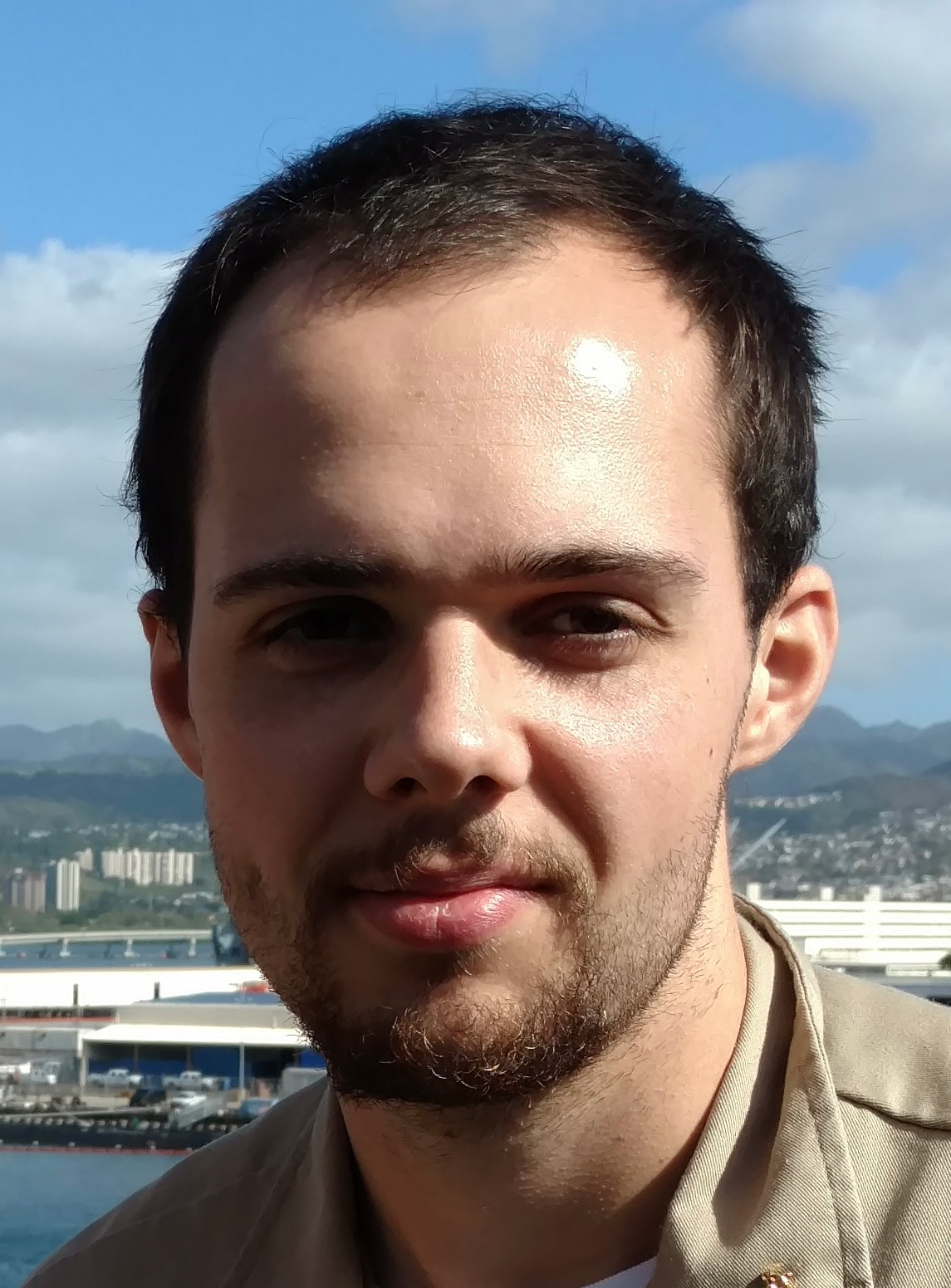
Kenny Cordasco is a graduate student at Rutgers University.
A professional merchant mariner and naval officer, he writes regularly at Cut the Cord on Substack.
Kenny can be reached at kcordasco@gmail.com.



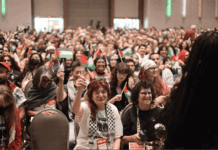

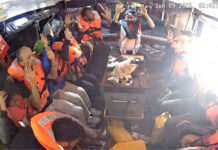
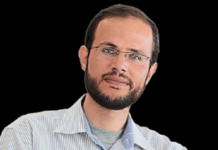
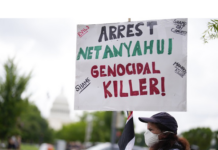
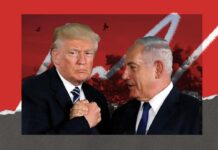
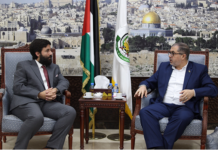

Also in April 1967, James Earl Ray was tricked into escaping from prison. This would enable him, the following year, to be framed for MLK’s assassination.